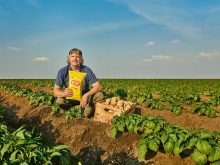If you’re starting a journey, you need to start with a plan. Starting a business is no different, says Kathy Bosse, new venture coach with Alberta Agriculture.
“Don’t make it a chore, don’t make it a job. Use it as a guide,” she told a recent Explore Horticulture session here. “Nobody plans to fail, they fail to plan.”
Bosse said the business plan can’t just be in your head. It needs to be put down on paper so everyone living on the farm understands it — even those who aren’t involved in the business. Business plans should be flexible and should be reviewed two or three times a year.
Read Also

Aster leafhoppers: An unwanted guest migrating from U.S. for canola
Research scientist talks about the prevalence of aster yellows in canola in Alberta, with testing on its pest carriers and conditions in which it affects yields.
“Your business plan is not just for tomorrow. It can be for three or 10 years down the road,” said Bosse.
Good business plans are based on research, which helps business owners make good decisions.
Business plans need to include a description of the product or service. This portion of the plan should be precise and highly specific.
“Pick out the thing that you’ll be known for, and then explain what happens around it,” Bosse said.
Banks will always ask about the management or business team. The financial portion is crucial and should be completed near the end of the business plan process. “As you grow, you may need to hire out some part of the business, so you need to know and understand your numbers,” she said.
The executive summary should be completed last, and should be about a page. “This is your selling point. It’s for both you and the bank. The bank is looking to see how you tell your story and if you know your industry,” she said.
Bosse said growers need to understand their industry and potential risks. She recommends people interested in fruit and vegetable production spend time exploring the industry as a whole in Alberta and Canada to discover what will work best in their area.
One way to do this is to talk to other growers and visit their operations and farmers’ markets, Bosse said. Knowing the regulations is important, as they can make or break a business. She recommends that anyone planning a fruit or vegetable operation should consult with their county first.
Bosse said growers need to understand who their competition is.
“The neighbour down the road is not your competition. Your competition is the imports that are coming into this province. If you’re growing tomatoes, there are tomatoes coming in from B.C. That’s your competition.”
Bosse is one of four Alberta Agriculture venture coaches available to meet and review their business plans.















